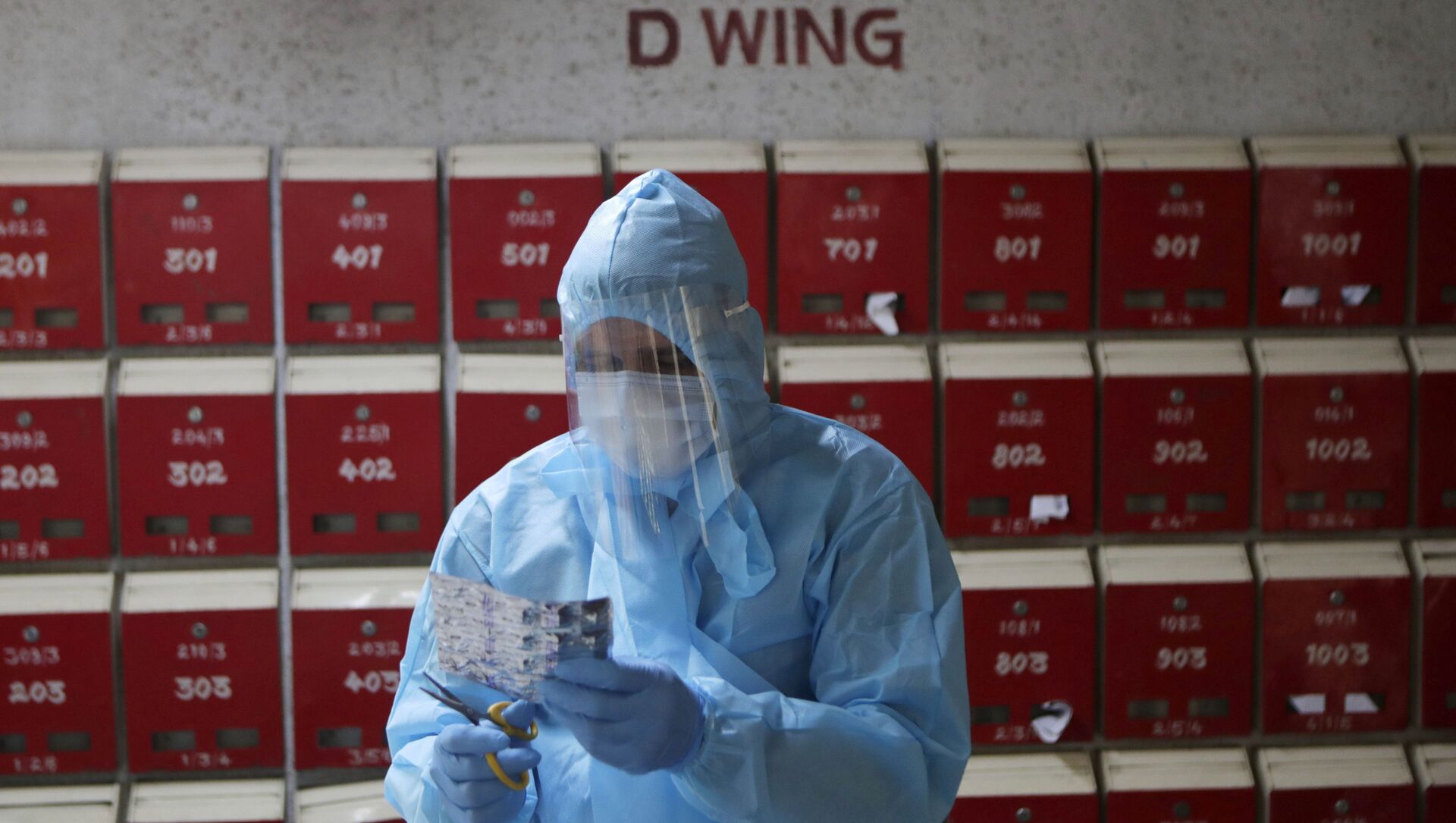With no announcement of a nationwide lockdown by the country's federal government, several Indian states are resorting to state-wide lockdowns to check the alarming rise in the number of COVID-19 cases.
The states of Karnataka, Rajasthan, Mizoram, Arunachal Pradesh, and Tamil Nadu have announced complete lockdowns from 10-24 May to curb the surge in COVID cases. The Union Territory of Puducherry later followed suit.
The state of Haryana, which was already in a week-long lockdown, extended it until 17 May in view of the spiraling number of coronavirus cases. The Delhi government too has extended its earlier-imposed lockdown for yet another week, deciding to suspend metro rail services as well.
The state of Maharashtra, which is among those with the highest number of coronavirus cases, has been in lockdown since 22 April. It has now been extended until 15 May. The government has banned inter-city as well as inter-district travel as well.
Kerala, another state with high numbers of COVID-19 cases, went into lockdown on 8 May. It is slated to last until 16 May.
In states where even the local government is dithering in imposing a lockdown to check the rising cases of the virus, several villages have decided to go into self-imposed lockdown.
In Telangana, after State Chief K Chandrashekhar Rao ruled out a complete lockdown, villages, including Saloora in the Nizamabad district, passed a local resolution for the early closure of shops and prevention of the entry of all non-village residents. Only two hours have been allowed by the villagers for buying essential goods during the day.
In Cherla Mandal, headquarters of the Kothagudem district, the weekly markets have been cancelled indefinitely by people themselves. Several trade associations also decided to shut shops by afternoon to check the advance of the virus.
The Indian federal government has come under scathing attack by the medical fraternity, which is shouldering the burden of COVID cases, for not announcing a national lockdown at a time when it is needed the most. In a letter to the Ministry of Health and Family Welfare on Saturday, the Indian Medical Association, the country's largest medical association, sought to know why the actual number of deaths due to COVID-19 were being "hidden from the public".
"In the last 20 days, the IMA has been insisting on the need for a national lockdown rather than a few states declaring a lockdown for a fortnight so as to get breathing time for health infrastructure to replenish materials and manpower. Lockdown will break the chain of this devastating spread", the IMA said in the letter.
The IMA also questioned the underreporting of coronavirus data saying, "We have lost 756 doctors in the first wave and 146 in the rapidly spreading second wave. Hundreds of deaths in big hospitals are being shown as non-COVID and crematoriums are full. RTPCR negative but CT Scan positive cases are not being counted. Why are we trying to hide actual deaths, seriousness about COVID behaviour will rise", said the IMA.
Questioning the differential vaccine pricing policy, the IMA also flagged the deepening oxygen crisis apart from the shortage of steroids at many places.
#PMOIndia #NITIAayog #LargestVaccineDrive #IMAIndiaOrg IMA demands the health ministry wake up from its slumber and responds to mitigate the growing challenges of the pandemic. pic.twitter.com/7OxKgLhi9Q
— Indian Medical Association (@IMAIndiaOrg) May 8, 2021
"The imposition of a lockdown in the country has become a purely political issue instead of one based on assessment of facts. It is unfortunate that the lives of [our] countrymen are being put at stake by the political class in the country in a grave national crisis that threatens our very existence", said Dr Rajesh Kumar, a member of the IMA.
In an editorial on Saturday, the medical journal The Lancet came down heavily on the Indian government's handling of the coronavirus pandemic. "India wasted its early successes in managing the pandemic and Modi government could preside over a 'self-inflicted national catastrophe' if the predictions of 1 million deaths from COVID-19 by 1 August came to be true", said the editorial.
Alluding to Twitter removing over 50 posts following orders from the government, The Lancet also said, "PM Narendra Modi's actions in attempting to stifle criticism and open discussion during the crisis are inexcusable. The government's COVID-19 taskforce had not met in months. The consequences of that decision are clear before us".
"Despite warnings about the risks of super spreader events, the government allowed religious festivals to go ahead, drawing millions of people from around the country, along with huge political rallies conspicuous for their lack of COVID-19 mitigation measures", The Lancet said.



